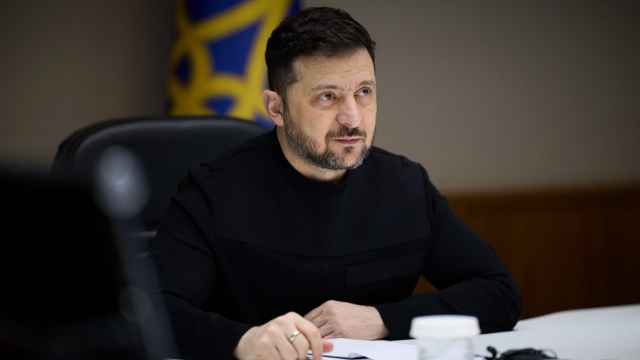Mayor Sergei Sobyanin has been on the job for three weeks now, but it remains unclear whether he is an effective manager.
Although Sobyanin has considerable experience as a public official in the regions, he has never had to deal with the kind of difficult problems that Moscow faces. As the mayor of Kogalym and the governor of the Tyumen region, he was able to build alliances with several other major players to make things happen. But in Moscow, the number of players is much larger, and Sobyanin’s administrative resources might prove inadequate to resolve the huge problems facing the overburdened city.
Sobyanin differs from other appointed governors because he enters office without his own team of trusted associates and will probably have to patch one together using the people at hand. The single exception is longtime aide Anastasia Rakova, whom he appointed as his representative to the city and federal legislatures.
From his first day in office, Sobyanin hit the ground running. He reshuffled his team, fired several high-profile officials, and ordered a total revision of administrative hurdles and the removal of hundreds of kiosks lining city streets. Sobyanin introduced a host of city planning initiatives, including revisions and even repeals of a number of former Mayor Yury Luzhkov’s decisions that had caused a public outcry. He also made surprise detours from his scheduled route.
These moves are reminiscent of former President Boris Yeltsin’s leadership style, and they must have been prepared long in advance. In fact, as early as the spring, reports were circulating that Sobyanin was forming a “shadow government” in Moscow.
A key figure in Putin’s unusual decision to shift Sobyanin to the mayoral spot is Vyacheslav Volodin, a senior United Russia official and Sobyanin’s replacement as Putin’s chief of staff.
This is a risky personnel move and could indicate a staffing and managerial crisis. Volodin’s appointment also demonstrates that the government is focusing on preparations for the elections and relations with the regions. At the same time, Volodin — who as a key United Russia leader was a de facto subordinate to President Dmitry Medvedev’s first deputy chief of staff Vladislav Surkov — becomes an independent agent in his new role. During Sobyanin’s tenure as chief of staff, some of Surkov’s functions had shifted to the White House, but now under Volodin that process will only intensify.
In his 1884 satire “The Bear in the Province,” writer Mikhail Saltykov-Shchedrin described three tactics for appointed governors. The best of them is to not interfere. He writes, “The task of the governor is not to attain some fanciful state of well-being, but to guard and protect the age-old and established — albeit dysfunctional — status quo from being disturbed.”
This is precisely what Sobyanin is unequipped to do. Thus, Sobyanin has a choice: either rock the boat and rile the leadership, or disrupt the balance among the rank and file and get skewered by the public.
Nikolai Petrov is a scholar in residence at the Carnegie Moscow Center.
A Message from The Moscow Times:
Dear readers,
We are facing unprecedented challenges. Russia's Prosecutor General's Office has designated The Moscow Times as an "undesirable" organization, criminalizing our work and putting our staff at risk of prosecution. This follows our earlier unjust labeling as a "foreign agent."
These actions are direct attempts to silence independent journalism in Russia. The authorities claim our work "discredits the decisions of the Russian leadership." We see things differently: we strive to provide accurate, unbiased reporting on Russia.
We, the journalists of The Moscow Times, refuse to be silenced. But to continue our work, we need your help.
Your support, no matter how small, makes a world of difference. If you can, please support us monthly starting from just $2. It's quick to set up, and every contribution makes a significant impact.
By supporting The Moscow Times, you're defending open, independent journalism in the face of repression. Thank you for standing with us.
Remind me later.






